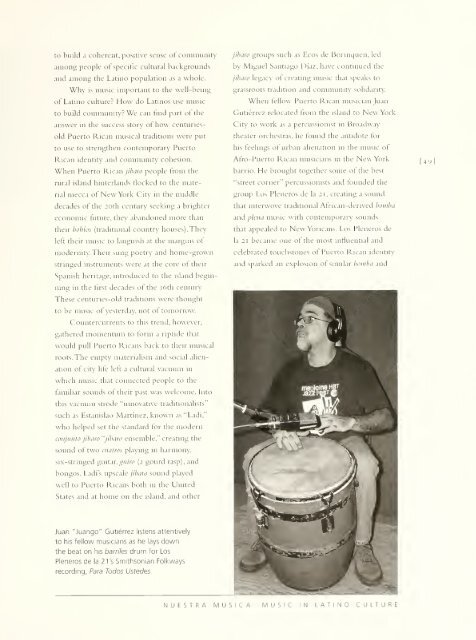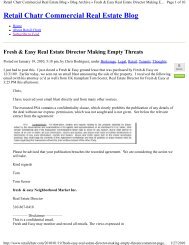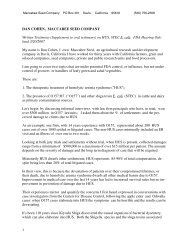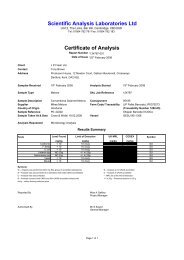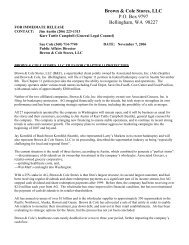NUESTRA MÚSICA: MUSIC INBuilding CommunityLATINO CULTUREDANIEL SHEEHY[48]Whatisthe meaning of music? One person's music mightbe another person's noise, devoid of significance. On thecither hand, a simple melody might tap into a deep veinot emotion, eall up a cherished memory, deepen spiritualdevotion, make the body move, or spur social action.When people endow music with meanings, associations, and values, they lenditpower — power to communicate, to move us, to transform our frame ofmind and our emotions. A common musical grounding can be used tostrengthen social connectedness, to bring people together incause, or to create symbols ot identity tor public representation.commonWhat, then, is the meaning ot música latina— Latino music? The title ofthe Nuestra Música— "Our Music"— program conveys two meanings. Oneis the feeling ot closeness that Latinos who share lite experiences, values, amiperhaps language teel when they sav. "This is out music "The other meaning,underscored by the symbol-charged setting of the National Mall inthe nation'scapital around the Independence I >av holiday, is that niíisiñi latina is adefining piece ot our nation's living cultural heritage. The storylineof the 200s Nuestra Música program is "Music BuildsCommunity"— how 1 atinos have used music to persevereas mexicanos, Chícanos, puertorriqueños, NewYoricans,cubanos, salvadoreños, centroamericanos, dominicanos, colombianos,Latinos, or another self-proclaimed label, in themass-media-driven, multicultural society ot the UnitedStates. In elaborating this theme, our greater purposesover the tour years of this project (2004-2007)are to spotlight grassroots música latina's beauty,texture, and centrality to our nation's cultural coreand to explore the main shades of meaning thatLatinos give music. Our special focus 111the 200sprogram is how Latinos use music and the values it carriesFor Nellie Tanco, veteran member of Los Plenerosde la 2 1 , the performance of Afro-Puerto Ricanbomba and plena inNew York City builds astrong sense of Puerto Rican identity.SMITHSONIAN POLK LIFE FESTIVAL
to build a coherent, positive sense of communityamong people ot specific cultural backgroundsand among the Latino population as a whole.Why ismusic important to the well-beingof Latino culture? How do Latinos use musicto build community? We can find part ot theanswer in the success story of how centuriesoldPuerto Rican musical traditions were putto use to strengthen contemporary PuertoRican identity and community cohesion.When Puerto Rican jíbaro people from therural island hinterlands flocked to the materialmecca of New York City in the middledecades of the 20th century seeking a brightereconomic future, they abandoned more thantheir bohíos (traditional country houses). Theyleft their music to languish at the margins otmodernity. Their sung poetry and home-grownstringed instruments were at the core ot theirSpanish heritage, introduced to the island beginningm the first decades of the [6th century.These centuries-old traditions were thoughtto be music of yesterday, not of tomorrow.Countercurrents to this trend, however,gathered momentum to form a riptide thatwould pull Puerto Ricans back to their musicalroots. The empty materialism and social alienationof city life left a cultural vacuum mwhich music that connected people to thefamiliar sounds of their past was welcome. Intothis vacuum strode "innovative traditionalists"such as Estanislao Martínez, known as "Ladi,"who helped set the standard tor the modernconjunto jíbaro "jíbaro ensemble," creating thesound ot two cuatros playing in harmony,six-stringed guitar, güiro (a gourd rasp), andbongos. Ladi's upscale jíbaro sound playedwell to Puerto Ricans both in the UnitedStates and at home on the island, and otherjíbaro groups such as Ecos de Borinquen, ledby Miguel Santiago Diaz, have continued thejíbaro legacy of creating music that speaks tograssroots tradition and community solidarity.When fellow Puerto Rican musician JuanGutiérrez relocated from the island to New YorkCity to work as a percussionist in Broadwaytheater orchestras, he found the antidote forhis feelings ot urban alienation 111 the music otAfro-Puerto Rican musicians in the New Yorkbarrio. He brought together some ot the best"street corner" percussionists and founded thegroup Los Pleneros de la 21, creating a soundthat interwove traditional African-derived bombaand plena music with contemporary soundsthat appealed to New Yoricans. Los Pleneros dela 21 became one of the most influential andcelebrated touchstones of Puerto Rican identityand sparked an explosion ot similar bomba and491Juan "Juango" Gutiérrez listens attentivelyto his fellow musicians as he lays downthe beat on his barriles drum for LosPleneros de la 2 1 's <strong>Smithsonian</strong> Folkwaysrecording, Para Todos Ustedes.NUESTRA MÚSICA MUSIC IN LATINO CULTURE
- Page 1: Smithsonianolklife Festival\Food Cu
- Page 4 and 5: The annual Smithsonian Folklite Fes
- Page 7 and 8: —CONTENTSThe Festival's Timely Ap
- Page 9 and 10: —THE FESTIVAL'S TIMELY APPEALLAWR
- Page 11 and 12: COMMERCE FOR CULTUREFrom the Festiv
- Page 13 and 14: [ii]The food concession for the Mel
- Page 15 and 16: oMiiitbioni.indotal SoundL04.A 1 Sl
- Page 17: 1WELCOME TO THE 2005 FOLKLIFE FESTI
- Page 20 and 21: Workers harvest artichokes at Ocean
- Page 22 and 23: —assigned aparticular dish—meat
- Page 24 and 25: I--IPot Pie Farm manager Elizabeth
- Page 26 and 27: ISustainable farmers such as Eliot
- Page 28 and 29: "IThe numberof programsdesignedfor
- Page 30 and 31: .hadSALAD GREENS WITH GOAT CHEESE,
- Page 32 and 33: w.A>wm:~
- Page 34 and 35: —3 3]OCCUPATIONAL CULTUREThe 2005
- Page 36 and 37: employees, the USDA Forest Servicei
- Page 38 and 39: I[3 6]page book, which could fit in
- Page 40 and 41: ká.!i- .>!mKPA backpacker sets up
- Page 42 and 43: --^i'liunterw eight jihI ...itl jib
- Page 44 and 45: —4-"The essentialpiece isto captu
- Page 46 and 47: I44cutDUTCH OVENONE-POT MEALThomas
- Page 48 and 49: —FUTURE CONCERNS FOR PUBLIC LANDS
- Page 52 and 53: plena groups throughout the Northea
- Page 54 and 55: NUESTRA MÚSICA LAUNCHES NEW SERIES
- Page 56 and 57: NUESTRA MÚSICA: MUSIC IN LATINO CU
- Page 58 and 59: "ILos Camperos de Valles son músic
- Page 60 and 61: RAICES LATINASNUESTRA MÚSICA LANZA
- Page 63 and 64: IOMAN: DESERT, OASIS, AND SEARICHAR
- Page 65 and 66: DESERTThe deserts ot the Arabian Pe
- Page 67 and 68: THE FESTIVAL PROGRAMThe 200s Smiths
- Page 70 and 71: 6 8The coiled, leather-covered bask
- Page 72 and 73: 70]COASTAL CRAFTSMANSHIPAND GLOBAL
- Page 74 and 75: [72]Although the oldismaking way fo
- Page 76 and 77: AN OMANI FOLKTALEASYAH AL-BUALYOman
- Page 79 and 80: y%aMUSIC AND DANCE INOMANOMAN CENTR
- Page 81: In the southern Dhufar region, al-b
- Page 84 and 85: ecosystems, identification of plant
- Page 86 and 87: 2:00IIIVorkshopFESTIVAL SCHEDULE (P
- Page 88 and 89: Rhythm,Saturday, June 25 (Programs
- Page 90 and 91: )avidi nestMonday, June 27(Programs
- Page 92 and 93: 1:00IIlamFriday, July 1 (Programs a
- Page 94 and 95: )utchSunday, July 3(Programs are su
- Page 96 and 97: EVENING CONCERTSSounds of the Fores
- Page 98 and 99: theRELATED EVENTS[96]Nuestra Músic
- Page 100 and 101:
IIDónalas Anderson,Washington, D.C
- Page 102 and 103:
'IEd LiíDmi, Studio City, Californ
- Page 104 and 105:
ISudhir Seth, Bethesda, MarylandA g
- Page 106 and 107:
1 if 1 DumberHoneyBeehive Beeproduc
- Page 108 and 109:
1"''NewI >onI Lui\IDon Bustos,Espa
- Page 110 and 111:
Ian Barlow, White Bird,Idaho; Woodl
- Page 112 and 113:
I 'istnet1Gordon Grant,Corvallis, O
- Page 114 and 115:
Kristen Marline, Flagstaff,Arizona;
- Page 116 and 117:
I1 ountries,IIHistorie Site, once t
- Page 118 and 119:
1IworksI1 11Istations are vital to
- Page 120 and 121:
1'IenIpanderetas;JCJ Band. Washingt
- Page 122 and 123:
Ralph Rinzlersongs are "made" (or c
- Page 124 and 125:
I >cmseI VhorahII MiI lameEne Nance
- Page 126 and 127:
|i 2forIIBartlevy1 )oerr;IIParadeSP
- Page 128 and 129:
II AerialIIII1Washington and Jeffer
- Page 130 and 131:
Stack, Bill Stafford, loni Stafford
- Page 132 and 133:
SMITHSONIAN FOLKLIFE FESTIVAL 20051
- Page 135 and 136:
SMITHSONIAN FOLKLIFE FESTIVAL 2005B
- Page 138:
Smithsonian Folklife FestivalSMITHS


